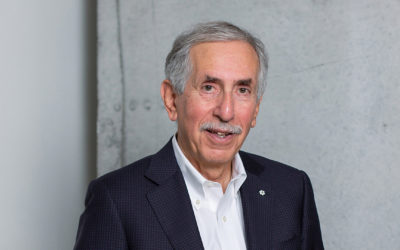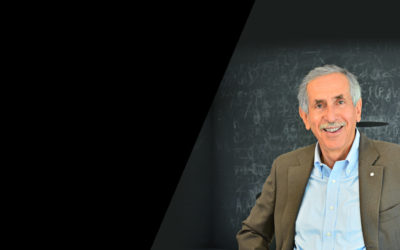President’s Message
It has been nearly one year since COVID-19 was declared a pandemic. The past 12 months have been very challenging for many of us and have brought such profound change that they will surely be studied closely by historians and political scientists for decades to come. Among the lessons of the last year, one stands out: science is crucial to our collective health, well-being, and prosperity.
The pandemic has thrust science onto centre stage. It has shown that science and the scientific community are best when they are informed by diverse perspectives, driven by urgency, and committed to global collaboration, transparency, and unbounded aspiration.
While the COVID-19 pandemic is far from over, I have been so inspired by the remarkable power of today’s science and by the creativity, openness, and commitment of the international scientific community. I am optimistic that science will end this pandemic and propel us into a prosperous and sustainable future.
Bringing five safe and effective vaccines to market in less than a year is truly a remarkable accomplishment. Bringing a vaccine to market in a decade has always been considered fast, but to succeed in a year is a landmark achievement. The successful race for COVID-19 vaccines shows what is possible when great science, international collaboration, strong institutions, and bold thinking all come together.
“Science and the scientific community are best when they are informed by diverse perspectives, driven by urgency, and committed to global collaboration, transparency, and unbounded aspiration.”
While certainly fast, the development of COVID-19 vaccines was neither easy nor straightforward. On the contrary. The first two vaccines to be tested, approved, and used (the ones developed by Moderna and Pfizer/BioNTech), are based on new mRNA technology that took decades to go from lab bench curiosities to life-saving inoculations. Now that the technology is mature, its speed and adaptability mean we will likely call on mRNA vaccines to address future pandemics.
A new vaccine platform is just the most recent and salient example of a global challenge being addressed by science. Throughout history, fundamental discoveries and social research have led to technological revolutions, advances in policy, and ultimately to longer and healthier human lives. Fundamental understanding of plant biochemistry and plant genetics led to the fertilizers and plants that today feed the world; the accidental discovery of a bacteria-killing fungus led to penicillin and a dramatic reduction in deaths from pneumonia, surgery, and childbirth over the past century; studying the health of populations instead of individuals led to an understanding of the socioeconomic determinants of health; designing algorithms to mimic neurons led to the artificial intelligence revolution that underlies the biggest tech companies in the world.
The challenges we face, from climate change and antibiotic resistance to income inequality, the rise of populism, and building a sustainable, inclusive, and innovation-led post-pandemic economy will need both laboratory and social sciences as well as the humanities. The solutions won’t just appear out of nowhere. Indeed, in U.S. President Joe Biden’s mandate letter to the new science advisor Dr. Eric Lander, President Biden identifies science and technology as crucial to economic recovery. The best way to foster solutions is to convene the brightest minds from around the world and encourage them to work together across borders and disciplines.
As CIFAR prepares to enter our 40th year in 2022, we are looking to address the next big questions facing science and humanity. We look to the future with the bold optimism that has come to define our approach to knowledge creation. I hope you will join us on our journey in addressing the most pressing issues facing science and humanity by supporting our new Futures Fund. With your support, we will continue creating global collaborations of some of the world’s most brilliant minds and catalyze the profound advances in knowledge needed to build a resilient, sustainable, and inclusive world.
Alan Bernstein,
Alan Bernstein, OC, OOnt, PhD, FRSC/MSRC, FCAHS
President & CEO, CIFAR








